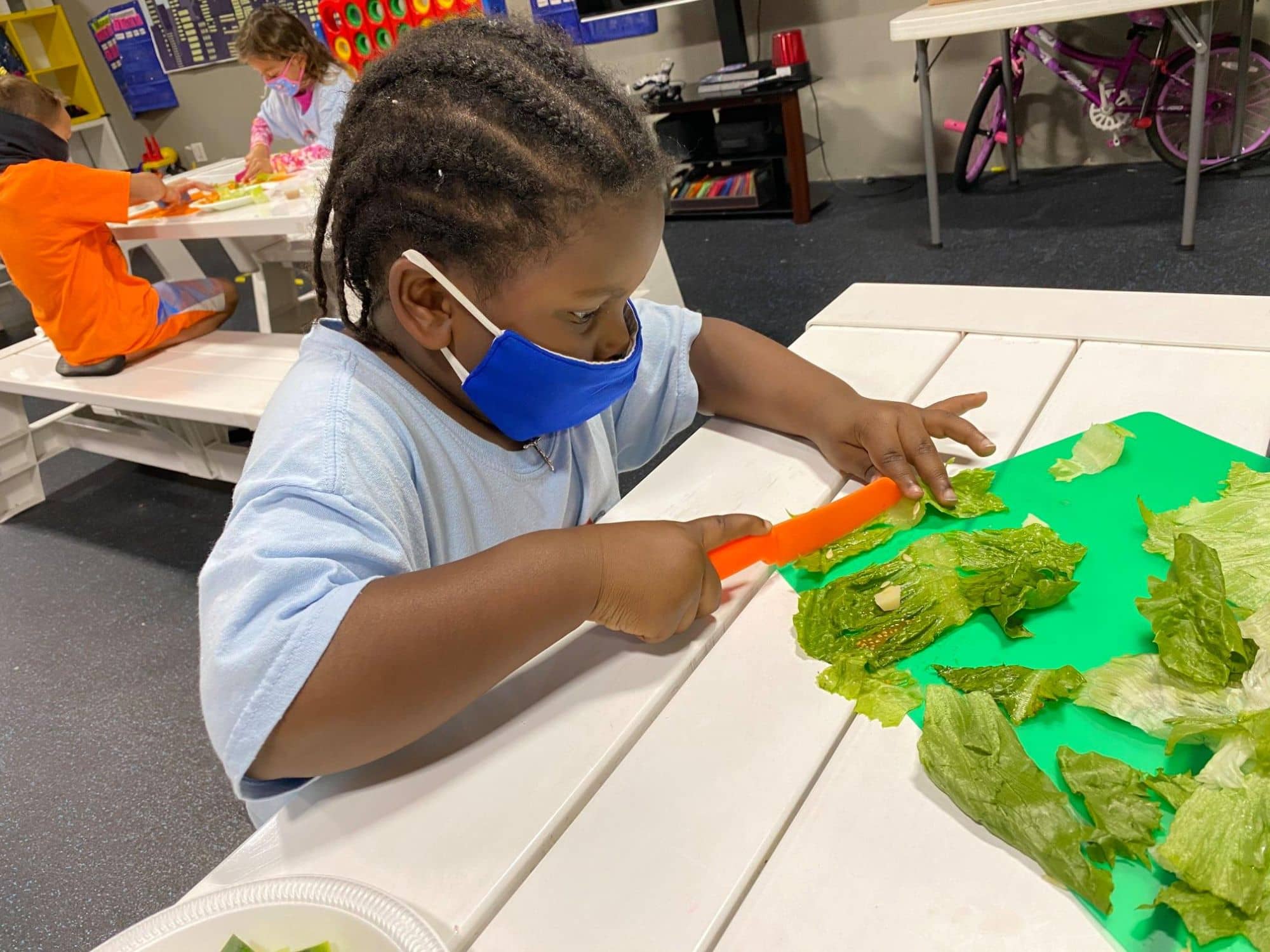Address
4641 N State Rd 7 Unit 15B, Coconut Creek, FL 33073
Work Hours
Monday to Friday: 9AM - 6PM
Weekend: 10AM - 6PM

As parents, we all want our children to thrive, not just physically but also mentally. One of the most effective ways to support brain development in children is by nourishing both their bodies and their minds. Through the right foods and exercises, you can help improve your child’s cognitive abilities, memory, focus, and overall mental health.
In this guide, we’ll explore how the right foods can fuel brain power and how specific exercises can stimulate mental growth. These strategies are easy to incorporate into everyday life and can make a big difference in your child’s cognitive development.
What we eat has a significant impact on how our brain functions. For kids, whose brains are developing rapidly, diet is critical in supporting cognitive growth and improving mental performance. The brain needs a steady supply of energy and nutrients to function optimally. Here are key foods to include in your child’s diet for a brain boost.
Omega-3 fatty acids are often referred to as the building blocks of the brain. These essential fats are vital for brain development, concentration, and overall cognitive function. They are also known to reduce inflammation in the brain, which can help protect against cognitive decline as children grow.
Fatty fish like salmon, sardines, and mackerel are excellent sources of omega-3s. For plant-based options, chia seeds, flaxseeds, and walnuts provide a healthy dose of these fatty acids. If your child is a picky eater, you might consider omega-3 supplements to ensure they’re getting enough of this brain-boosting nutrient.
Eggs are packed with choline, a nutrient crucial for brain development. Choline helps produce acetylcholine, a neurotransmitter that plays a key role in memory and learning. It also aids in the formation of cell membranes, making it essential for the proper functioning of brain cells.
Incorporating eggs into your child’s breakfast can be a simple and effective way to provide a morning boost. Whether scrambled, boiled, or added to sandwiches, eggs are versatile and kid-friendly.
Berries like blueberries, strawberries, and blackberries are rich in antioxidants and flavonoids that have been shown to improve brain function. These compounds help protect the brain from oxidative stress, a process that can damage cells and contribute to cognitive decline.
Berries improve communication between brain cells, improve memory, and increase learning capacity. Adding them to yogurt, cereal, or smoothies is a delicious way to incorporate them into your child’s diet.
Spinach, kale, and other leafy greens are loaded with vitamins and minerals essential for brain health. These vegetables are rich in folate and vitamin K, both of which support cognitive function and help prevent memory loss.

Folate is particularly important for brain development during childhood, and deficiencies in this nutrient have been linked to neurological disorders. To make leafy greens more appealing to children, try blending them into smoothies, making salads, or incorporating them into sauces and soups.
The brain requires a steady supply of glucose to stay alert and focused, and whole grains provide just that. Unlike refined carbohydrates, whole grains release energy slowly, giving the brain a consistent fuel source throughout the day. This can help prevent energy crashes and improve concentration.
Foods like oatmeal, brown rice, and whole-wheat bread are excellent sources of complex carbohydrates. Including them in your child’s meals can promote better focus during school or homework time.
Nuts and seeds, such as almonds, peanuts, and pumpkin seeds, are packed with vitamin E, an antioxidant that helps protect the brain from free radical damage. Vitamin E has been linked to better cognitive performance and reduced mental decline as we age.
In addition to vitamin E, nuts and seeds contain healthy fats and proteins that provide long-lasting energy for the brain. They make for a convenient snack that can boost your child’s brainpower without causing sugar spikes or crashes.
Gut health is directly linked to brain health, and fermented foods like yogurt, kefir, and sauerkraut support a healthy gut microbiome. The probiotics found in these foods help maintain the balance of good bacteria in the digestive system, which in turn has a positive effect on cognitive function and mood.
Yogurt is a kid-friendly option that can easily be incorporated into breakfast or snacks. Look for varieties with live and active cultures and minimal added sugars to maximize the brain-boosting benefits.

Physical activity isn’t just beneficial for the body—it’s also crucial for brain development. Engaging in regular exercise increases blood flow to the brain, enhances neuroplasticity (the brain’s ability to adapt and grow), and helps release feel-good chemicals that improve mood and reduce stress. Below are some exercises that are particularly effective at stimulating the brain.
Running, swimming, biking, and other aerobic activities get the heart pumping, which increases oxygen and nutrient flow to the brain. This type of exercise has been shown to improve memory, attention span, and problem-solving abilities. Aerobic exercise also encourages the release of brain-derived neurotrophic factor (BDNF), a protein that supports the growth of new neurons and enhances cognitive function.
For kids, engaging in activities like playing tag, biking around the neighborhood, or swimming laps can be fun ways to incorporate aerobic exercise into their routine. Even 30 minutes a day can have a positive impact on their brain health.
Exercises that challenge coordination, such as dance, martial arts, or gymnastics, are great for brain development. These activities require the brain to work harder to process information from different senses and coordinate movements. Over time, this strengthens the brain’s ability to multitask and improves overall mental agility.
Dancing to a rhythm or following specific movements in martial arts encourages the brain to forge new neural connections, which can help improve memory and attention.
Yoga and mindfulness exercises are excellent for teaching children how to focus and manage their emotions. These activities encourage deep breathing, which increases oxygen flow to the brain and helps reduce stress levels. Studies show that mindfulness and yoga can improve attention span, emotional regulation, and cognitive flexibility in children.
Simple yoga poses or breathing exercises can be incorporated into a child’s daily routine. For instance, teaching your child deep breathing techniques when they feel overwhelmed can help them regain focus and calm their mind.
Engaging in outdoor play, such as climbing, balancing, and exploring nature, stimulates the brain in unique ways. Being outside exposes children to different sensory experiences, which can enhance their creativity and problem-solving skills.
Climbing on playground equipment or exploring a hiking trail requires children to use spatial awareness and critical thinking to navigate their environment, providing a mental workout along with physical benefits.
While strength training is often associated with physical fitness, it also offers cognitive benefits. Exercises like push-ups, squats, and weightlifting require focus, discipline, and coordination, all of which help sharpen the mind. Strength training has been linked to improvements in working memory, executive function, and emotional control.
Introducing age-appropriate resistance training into your child’s fitness routine can help improve their cognitive function, as well as their confidence and physical strength.
Nourishing your child’s brain is just as important as fueling their body. By incorporating brain-boosting foods and exercises into their daily routine, you can help enhance their cognitive abilities, improve focus and memory, and promote emotional well-being. Whether through a balanced diet rich in omega-3s and antioxidants or engaging in physical activities that challenge their coordination and creativity, these small changes can have a big impact on your child’s mental development.